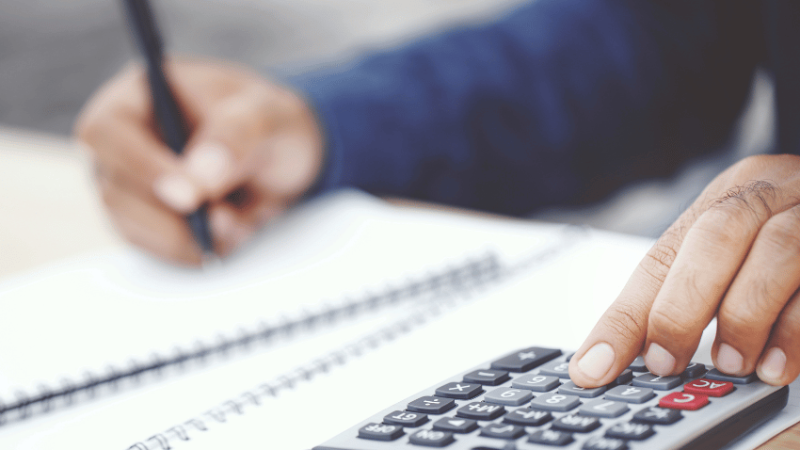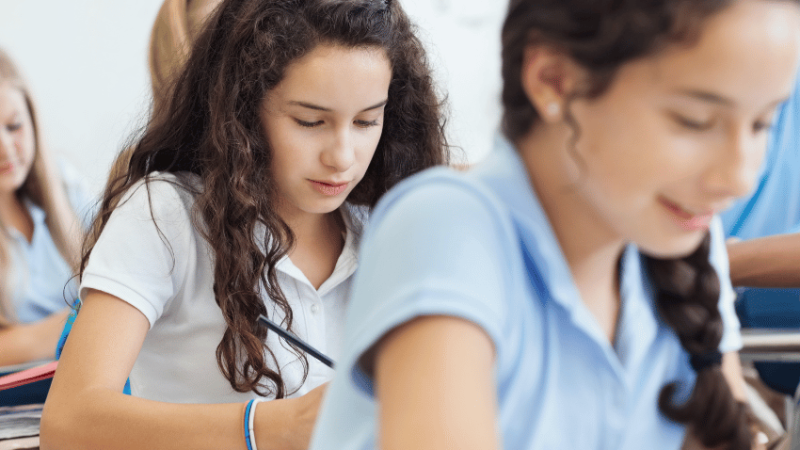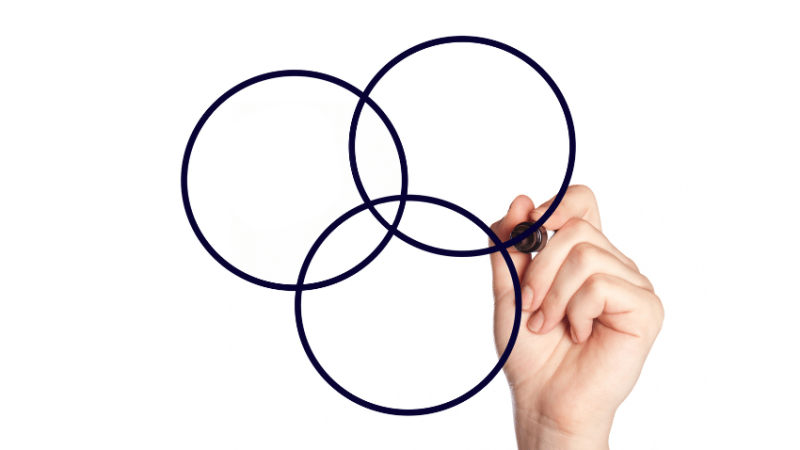KS3 maths – Fun games and lessons to try

Improve your secondary students' mathematical fluency, confidence and reasoning with these free maths games and lesson ideas…

- by Teachwire
- Classroom expertise and free resources for teachers
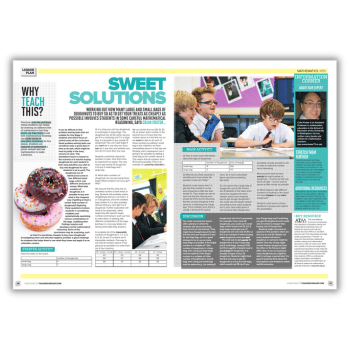
Some people might question whether ‘fun’ and ‘maths’ can coexist in the same sentence. Is aiming for ‘fun’ in KS3 maths lessons is the right thing to do?
We’ve all seen ‘fun at the expense of learning’ lessons. Your aim was to use biscuits to teach about fractions, but all that the students remembered afterwards was ‘that lesson where we ate biscuits’!
But we can’t ignore ‘fun’. It matters very much how students perceive mathematics in school. If they feel positive and successful in maths lessons, they’re much more likely to invest greater efforts in their learning. This also means they’re likely to choose to pursue maths and other STEM subjects later on.
Well-designed ‘fun’ activities in maths can help to raise students’ perception of maths. It can also make important ideas and skills highly memorable.
(We’ve also got lots of maths games for KS2).
Three fun KS3 maths activities
Here are three suggestions from Colin Foster for bringing fun into your KS3 maths lessons…
Begin with an intriguing question
The start of a new topic is often a good opportunity to motivate some of the main ideas that are coming. Estimation in school maths often involves repetitive context-free questions such as: Find an estimate for:

However, estimation can be a rich opportunity to pose questions, such as: Where will you be in…
- 1000 seconds?
- 1,000,000 seconds?
- 1,000,000,000 seconds?
Students typically become very engaged by these large numbers, that turn out to be lengths of time much more easily understood when converted into other units. They also like the focus on themselves and their lives.
Try these other engaging starter questions:
- How many people could stand on a football pitch?
- To fill the boot of a car, how many £1 coins would you need?
- How long would it take to drink all of the water in a swimming pool?
Students will enjoy inventing their own estimation-type questions as well. This is not just ‘fun for the sake of fun’. It involves careful approximate calculations. It also raises issues about how accurate it is necessary to be in order to answer the question.
Download a free lesson plan where students practise estimating by converting £1 million into coins.
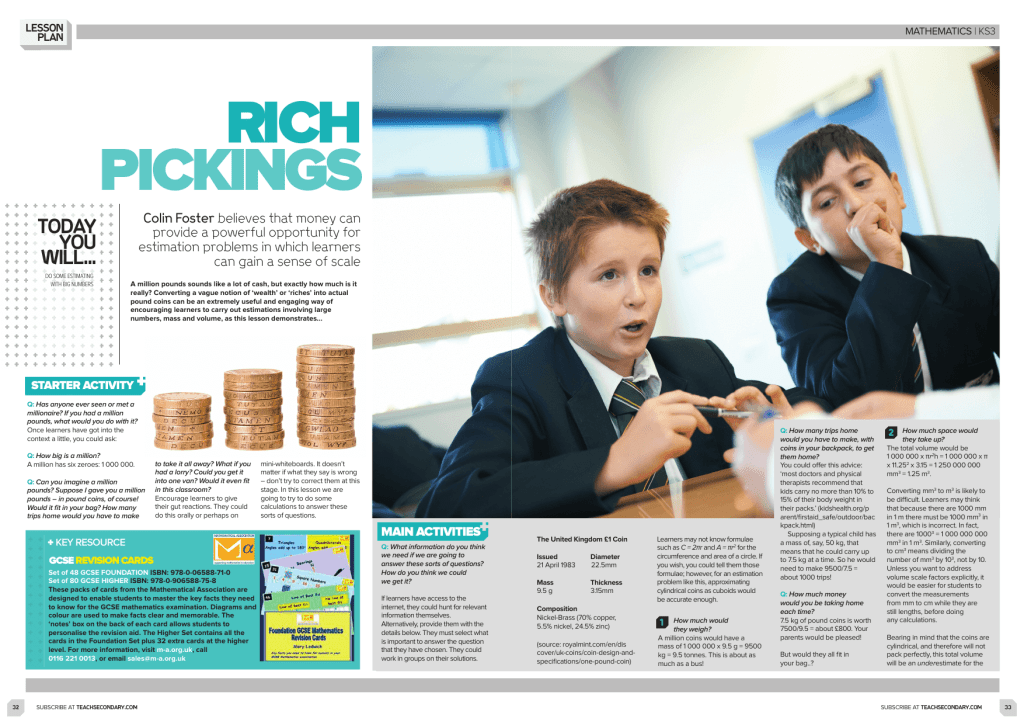
Play with today’s date
It can be very useful to have fun ‘fillers’ up your sleeve for spare moments, or to use whenever you judge that the class needs a gear change.
Again, these should not be ‘fun for the sake of fun’. Instead, they should involve students doing important things that they need to practise.
Often these activities will focus on numeracy. One example is to draw attention to the date, whatever day it happens to be. For example, suppose that it’s 15th October 2023, which we could write as 15/10/23. You can ask:
What numbers can you make using the digits 151023? (the repeated ‘1’ means you can use two 1s)
Students can discuss and agree on the rules, such as whether the numbers must be used in the given order, which mathematical operations to allow, whether to allow concatenation (eg putting 5 and 1 together to make 51). Make these decisions depending on the age of students and what functions they know about.)
For example, with these numbers, students could generate the number 9 with 1 x 5 + 10 – 2 x 3. The winner is whoever can make the most different integers.
Count up to 24
Games can be fun in their own right. However, they’re also a great opportunity for students to reason in order to analyse the best strategies.
Try this interesting game: a pair of students take it in turns to say a number that is 1, 2, 3 or 4. Add each number to the total so far. The winner is the person who says 24.
A game could go: 3, 4, 2, 1, 3, 2, 2, 2, 3, 2, with Player 2 (shown in bold) winning.
Working backwards is a key tactic that will help students to devise an optimal strategy. Can they guarantee a win? Alongside this reasoning, they are incidentally practising fast, basic arithmetic.
Colin Foster (@colinfoster77) is a Reader in Mathematics Education in the Department of Mathematics Education at Loughborough University. He has written many books and articles for teachers. Find out more at foster77.co.uk
Calculate voucher discounts
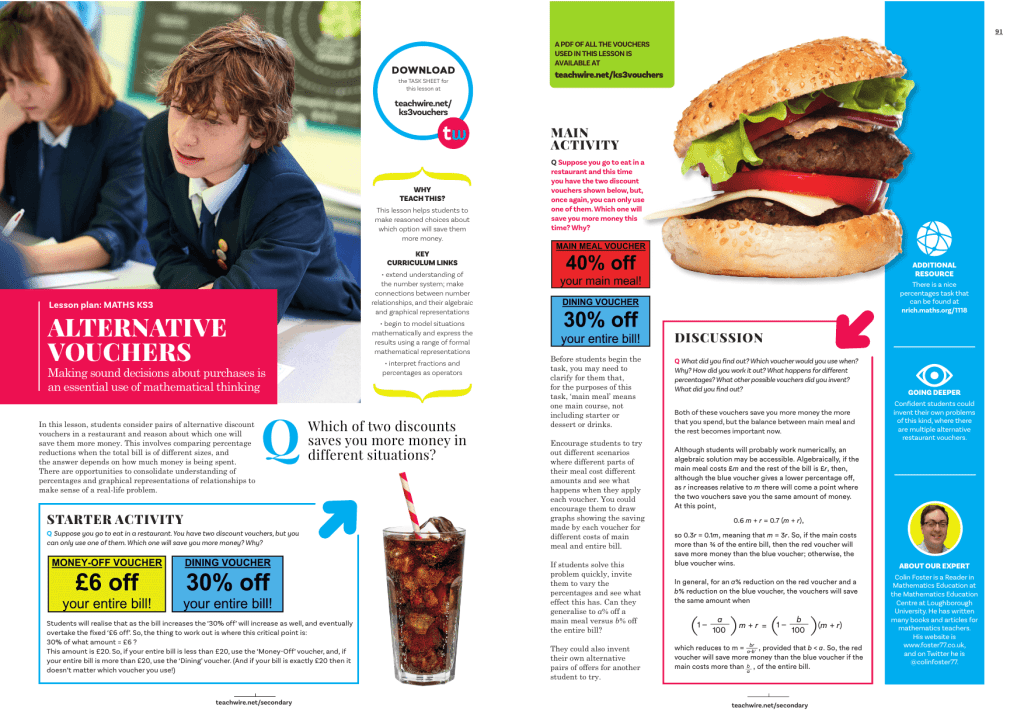
In this KS3 maths lesson, students consider pairs of alternative discount vouchers in a restaurant and reason about which one will save them more money.
This involves comparing percentage reductions when the total bill is of different sizes, and the answer depends on how much money is being spent.
Boost 3D shape understanding with a child’s toy
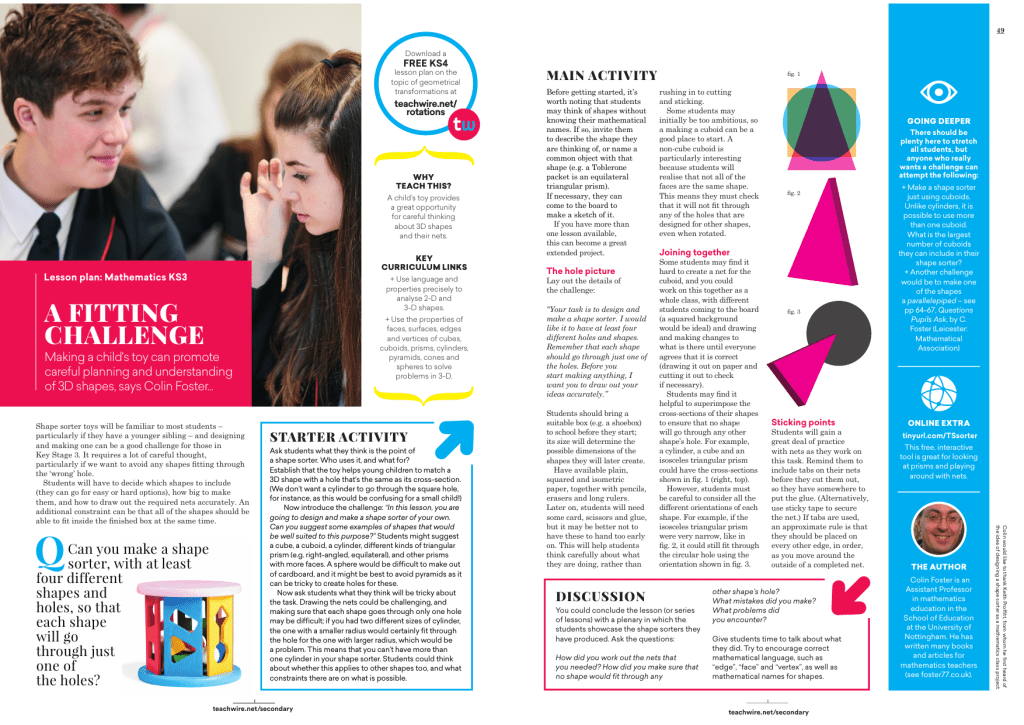
This lesson plan involves designing and making a shape sorter toy for babies. Pupils will need to decide which shapes to include, how big to make them, and how to draw out the required nets accurately.
Maths games KS3 PowerPoint
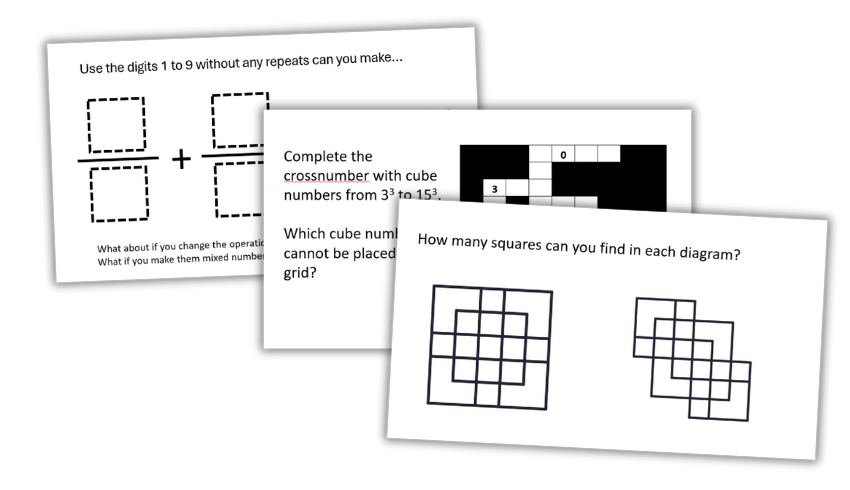
Have a go at this maths games KS3 PowerPoint if you’ve got unexpected time left in your lesson, or you want a fun end-of-term activity to get students’ brains whirring. Browse our list of GCSE maths games.
Explore probability by rolling dice
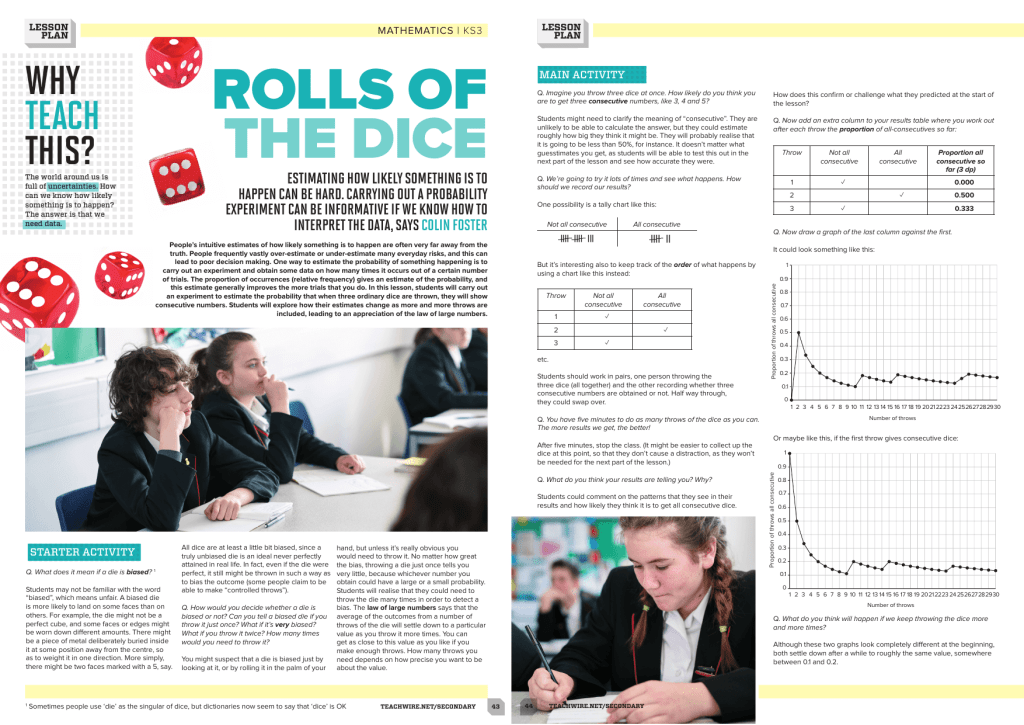
In this probability lesson plan by Colin Foster, students will carry out an experiment to estimate the probability that when three ordinary dice are thrown, they will show consecutive numbers.
Students will explore how their estimates change as more and more throws are included, leading to an appreciation of the law of large numbers.
Use puzzles to show what changes in percentages really mean
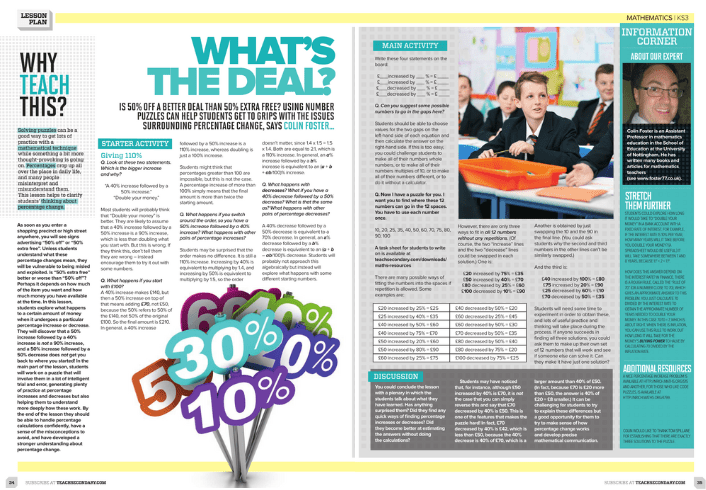
Percentages are commonplace in everyday life, but can be sometimes be confusing and difficult to interpret. In this lesson plan by Colin Foster, students get to grips with a series of puzzles aimed at showing what changes in percentage actually mean…
Carry out a probability experiment with lolly sticks
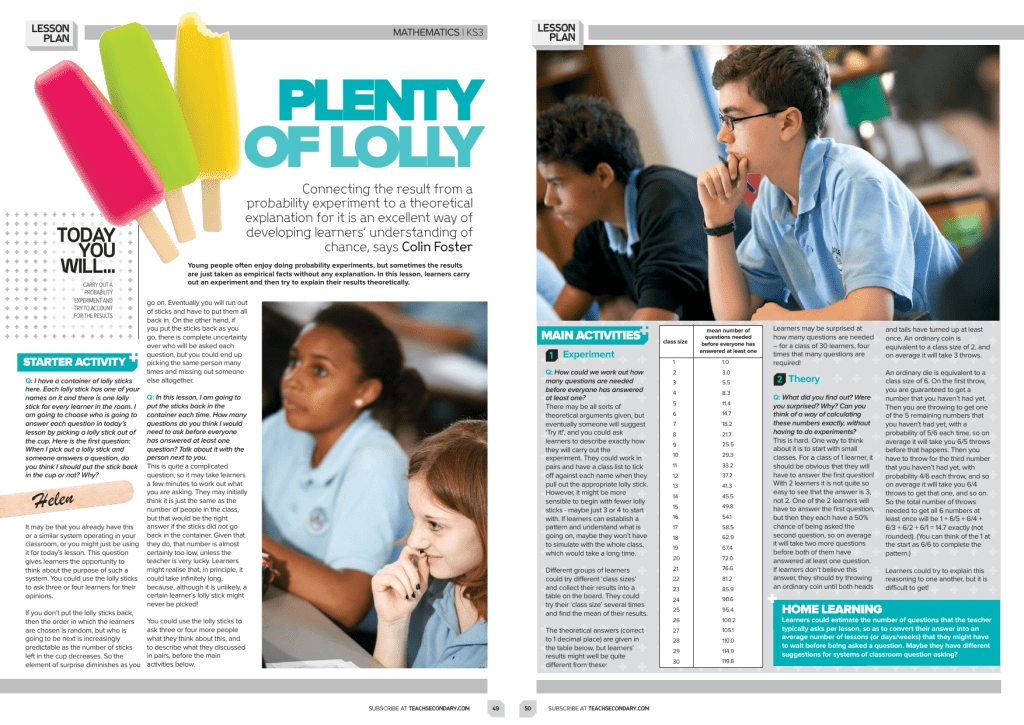
If you choose which student will answer a question by drawing lolly sticks bearing their names from a cup, how many questions would need to be asked before everyone has a chance to answer? That’s the subject of this KS3 maths lesson that sets up a problem solving activity on probability.
Improve mathematical reasoning with doughnuts
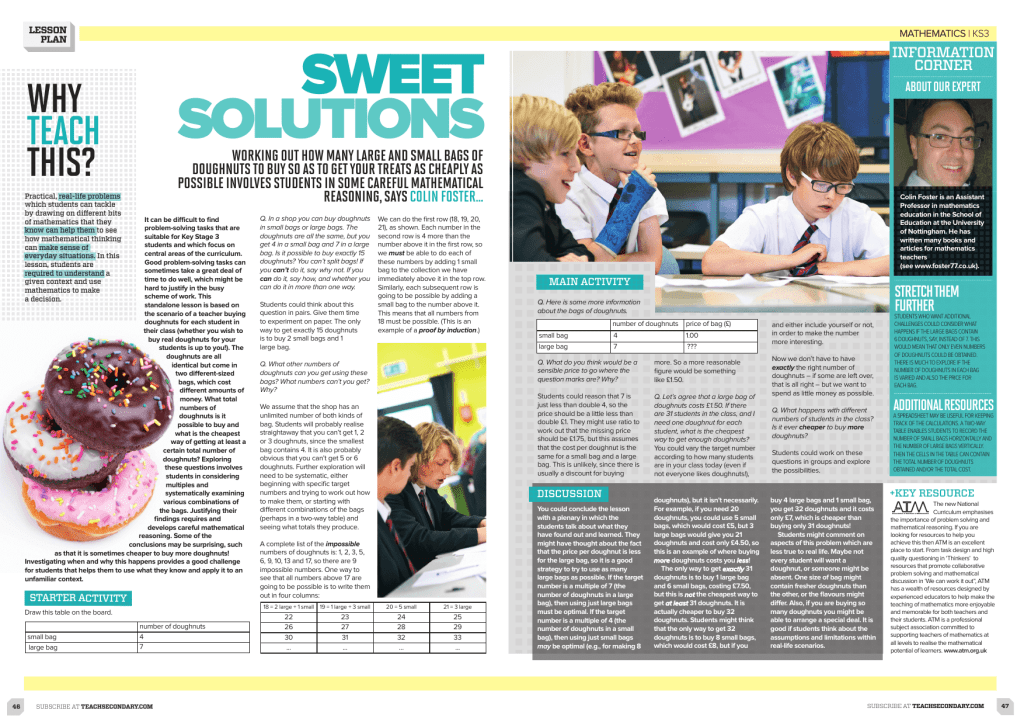
Working out how many large and small bags of doughnuts to buy so as to get your treats as cheaply as possible involves students in some careful mathematical reasoning.
This standalone lesson is based on the scenario of you buying doughnuts for each student in your class (whether you wish to buy real doughnuts for your students is up to you!)
Explore proportions by mixing paints

In this proportions KS3 maths lesson, students work on a task about pink paint, which is made from a mixture of red paint and white paint. How much red paint do you need to add to pink paint which is 60% red to turn it into pink paint which is 80% red?
Maths homework worksheets
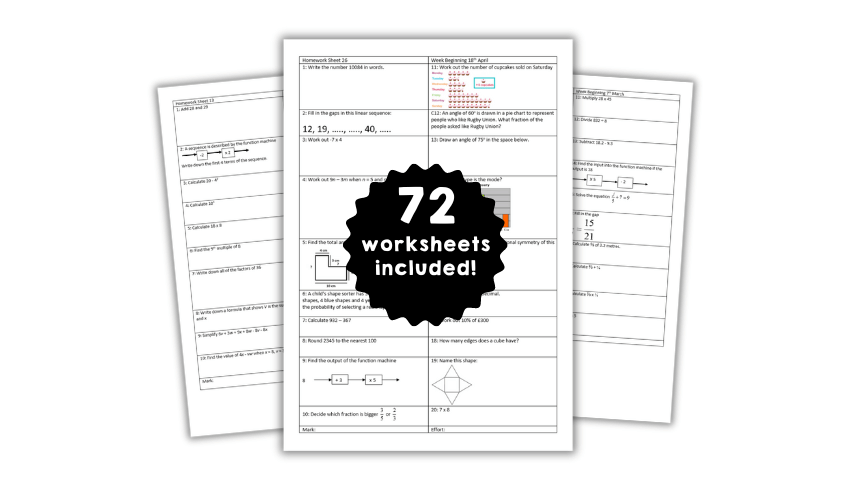
Help students practise their maths skills with these free maths homework question packs for Year 7, Year 8, Year 9 and GCSE maths.







